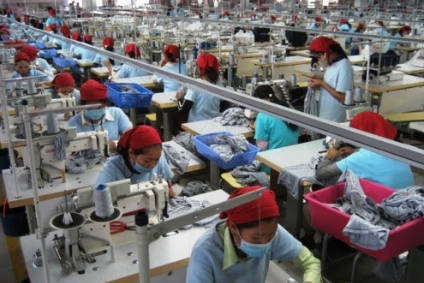
A cohort of over 50 organisations from around the world are urging brands, governments, and employers to take immediate action to ensure the safety of garment workers in Sri Lanka and Bangladesh.
In an open letter, the group, including Clean Clothes Campaign and Labour Behind the Label, say the current wave of Covid and the new Delta variant is leading to a surge of illness and death in both countries.
In addressing “all apparel brands sourcing from Bangladesh and/or Sri Lanka”, the group says that as both countries are key exporters of garments, workers in the apparel industry, who have little access to medical infrastructure or vaccines, have been especially hard hit with little support if they fall ill.
“For economic reasons, the governments of both countries excluded garment workers from lockdown measures by categorizing them as essential workers; therefore, they must report to work in crowded factories where the virus can easily spread.
“Despite constant calls from unions and international labour advocates since the beginning of the pandemic, neither national governments, nor local factory managers, nor international apparel brands that source from Bangladesh and Sri Lanka have acted to provide workers with adequate occupational safety and health protections or social programs that would allow workers to stay home.”
As such, the group is calling on factory managers, national governments, and international apparel brands to coordinate to:

US Tariffs are shifting - will you react or anticipate?
Don’t let policy changes catch you off guard. Stay proactive with real-time data and expert analysis.
By GlobalData- Include the garment industry in lockdowns to protect citizens from Covid-19 and prevent garment production under the pretext of continuing essential services;
- Expand vaccination and testing of garment workers where workers are working or being recalled to work;
- Implement the ILO Occupational Safety and Health (OSH) protection standards and Worker Rights Consortium guidelines for effective infection control in garment factories, with special attention to personal protective equipment (PPE), physical distancing, right of removal from danger and worker participation mechanisms, and adaptation of transport systems where needed;
- Ensure that workers who are forced to be absent from work due to new Covid-19 restrictions continue to receive their full wage in line with the demands of the Pay Your Workers campaign;
- Allow workers to voluntarily refuse unsafe work and do not exclude those who stop working due to Covid-19 risks from unemployment, severance, or other economic rights and benefits during the crisis or penalize them with loss of contracts or work when the crisis subsides.
For this to happen, the group says national governments must expand testing and vaccination of garment workers, enable quarantining, increase social distancing requirements for factories, therefore, reducing the percentage of workers allowed in each factory, and order that all workers be paid full wages during lockdowns.
Additionally, governments should include the apparel sector in national lockdowns and apply the rules of their lockdowns equitably to protect garment workers during the pandemic, they say.
The group is also calling for apparel brands to extend lead times on orders during lockdowns to allow for the reduction in the workforce or temporary factory closures needed to keep workers safe. And factory owners must comply with all new health mandates, including ensuring workers have access to PPE and can work at a safe distance. All workers must be paid their full wages during lockdowns.
“These steps are necessary actions that must be taken by international brands, national governments, and local factory managers to protect the lives and livelihoods of the workers whose labour they profit from,” the group says.



